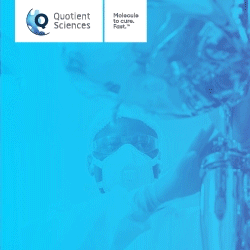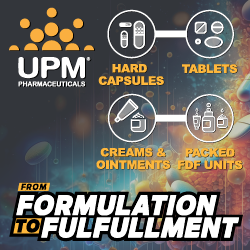Orbus Therapeutics Announces Enrollment of First Patient in Phase III Trial
Orbus Therapeutics Inc. recently announced that the first patient has been enrolled in a pivotal Phase III clinical trial, called STELLAR, of eflornithine in patients with anaplastic astrocytoma whose cancer has recurred following radiation and adjuvant chemotherapy. Eflornithine is a novel cytostatic agent that the company is developing to treat patients with recurrent anaplastic astrocytoma, a subtype of anaplastic glioma, a rare form of brain cancer. Eflornithine is designated as an orphan drug in both the US and Europe, and received Breakthrough Therapy Designation in the US for the treatment of anaplastic glioma.
“Anaplastic astrocytoma is a devastating brain cancer that affects roughly 15,000 patients in the US,” said Bob Myers, Co-Founder and Chief Executive Officer of Orbus Therapeutics. “Enrolling the first patient in this pivotal Phase III trial is a significant milestone for our company, and, we hope that it will be an even more significant one for patients who may benefit from this novel therapy.”
The Phase III STELLAR study is a randomized, open-label, controlled clinical trial that will include approximately 60 leading clinical trial centers in the US and Europe. The trial is designed to evaluate the efficacy and safety profile of eflornithine in combination with lomustine compared to lomustine alone in patients with anaplastic astrocytoma that recurs after surgery, irradiation, and adjuvant temozolomide chemotherapy.
“I am very pleased with the significant number of world-leading clinical investigators and sites who will be participating in this important clinical trial, which may lead to meaningful improvements in survival outcomes for recurrent anaplastic astrocytoma patients,” said Victor Levin, MD, founder of the Society of Neuro-oncology and Chairman of Orbus’ Clinical Advisory Board. “Patients whose anaplastic astrocytoma recurs after completing the current standard of care therapy, including surgery, radiation, and chemotherapy, face a poor prognosis with median survival of less than 12 months after recurrence. Clinicians and patients need better therapies for this terrible disease.”
The company plans to enroll approximately 280 patients into the STELLAR trial. Participants in the trial will be randomized at a 1:1 ratio into two treatment arms: eflornithine plus lomustine versus lomustine alone. The primary efficacy endpoint in the STELLAR trial is the duration of overall survival (OS). Secondary pre-specified efficacy endpoints include progression free survival (PFS) and objective response rate (ORR).
For more information about the trial, including enrolling centers, please visit www.clinicaltrials.gov (NCT02796261).
Several brain tumor types are grouped together under the name glioma, which originates in the glial cells that surround and support neurons in the brain. In the US, approximately 3,600 new cases of anaplastic glioma, one of two categories of malignant glioma, are diagnosed each year with a median survival of just over 3 years despite treatment with surgery, radiation, and chemotherapy.
The prevalence of anaplastic glioma in the US is estimated to be 20,000 people. Anaplastic astrocytoma is the largest subset of anaplastic glioma, and represents approximately 75% of anaplastic glioma patients. It is estimated that there are 2,700 new anaplastic astrocytoma cases diagnosed in the US each year.
Eflornithine is a novel cytostatic agent that irreversibly inhibits ornithine decarboxylase, a key enzyme in mammalian polyamine biosynthesis that is up-regulated in certain types of cancer. In controlled, randomized, and single arm clinical studies, eflornithine has shown an increase in overall survival of patients with newly diagnosed or recurrent anaplastic astrocytoma.
The company is conducting STELLAR, A Phase III, Randomized, Open-Label Study To Evaluate the Efficacy and Safety of Eflornithine Lomustine Compared to Lomustine Alone in Patients with Anaplastic Astrocytoma That Progress/Recur After Irradiation and Adjuvant Temozolomide Chemotherapy.
Eflornithine has been granted Orphan Drug Designation and Breakthrough Therapy Designation for the treatment of patients with anaplastic glioma by the US FDA, and has also been granted Orphan Medicinal Product status for the treatment of glioma by the Committee for Medicinal Products for Human Use (CHMP) at the European Medicines Agency (EMA).
Orbus Therapeutics Inc. is a private, clinical-stage biopharmaceutical company that is dedicated to developing products that treat rare diseases for which there are few, if any, effective therapies. The company’s lead product candidate in clinical development is eflornithine, which the company is developing to treat patients with recurrent anaplastic astrocytoma, a rare form of central nervous system cancer. For more information, visit http://www.orbustherapeutics.com.
Total Page Views: 1663












